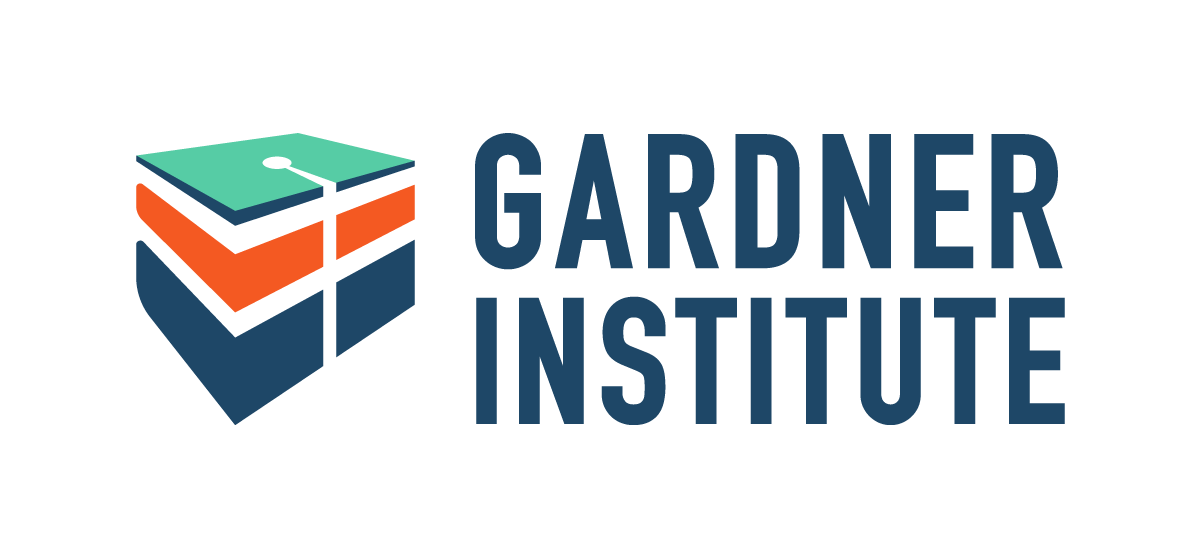BREVARD, NC. (October 27, 2022) –The John N. Gardner Institute for Excellence in Undergraduate Education (Gardner Institute) is pleased to announce the recent addition of three new and promotion of four existing staff members.
“We are thrilled and fortunate to be able to both deepen our bench with the addition of new staff and promote growth and opportunity for established members of the Gardner Institute’s team,” said Dr. Drew Koch, Gardner Institute CEO. “These additions and promotions will all significantly contribute to the scaling of the Gardner Institute’s work with postsecondary institutions – work that helps colleges and universities make sure that every student can graduate because access without success is an empty promise.”
The staff additions and promotions include:
Brittany Connor– joined the Gardner Institute as the newly added position of Assistant Director of Marketing and Communications and Engagement on a full-time basis in June 2022. Brittany, a graduate of Rutgers University with a M.A. in Communication, brings her experience in higher education communications. Brittany will apply her expertise with social media communications and marketing to help the Gardner Institute disseminate lessons learned in eliminating family-income, first-generation status, and race/ethnicity as the best predicators of student success.
Dr. Brent M. Drake – after nearly 12 years of service as a Gardner Institute evaluator and Fellow, Brent joins the Gardner Institute full-time as its new Senior Vice President for Operations and Research. Brent brings nearly 20 years of prior experience in higher education evaluation, innovation, and improvement to the Gardner Institute. He previously served as the Chief Data Officer at Purdue University and most recently as the Vice Provost for Decision Support at the University of Nevada, Las Vegas. Brent’s expertise will help the Gardner Institute scale work with institutions so that they may help more students, especially those from the least privileged backgrounds, cross the finish line.
Dr. Stephanie M. Foote – over the five years that she has been with the Gardner Institute, Stephanie has been instrumental to the growth and quality of the Gardner Institute’s faculty development, gateway course improvement, and curricular redesign efforts. Her promotion to Vice President for Teaching, Learning, and Evidence-based Practices took effect on October 1, 2022. Dr. Foote will draw on her record of excellence with the redesign of courses and pedagogy and her national reputation as a contributor to the scholarship of teaching and learning (SOTL). She will continue to scale the Gardner Institute’s existing and new efforts with faculty and teaching.
Dr. Monica Flippin Wynn – was promoted to Associate Vice President on October 1, 2022. Since joining the Gardner Institute in 2019, Dr. Flippin Wynn has displayed exemplary leadership and made significant contributions to the Gardner Institute. Examples of her innovative work include creating and scaling of the Equity in Retention Academy, guiding the evolution of the Transformative Conversations series, contributing to the development and delivery of the Equitable Employment and Completion Academy, and the coordinating the redesign of the Retention Performance Management process.
Dr. Jill Kramer has been promoted to a Senior Fellow effective October 1, 2022. Jill has been working with the institute in various capacities over the last three years. Her work has focused on the creation and deployment of the readiness, willingness, and ability survey, emergency aid, and other forms of Gardner Institute work with the institutional transformation. Dr. Kramer’s work in this expanded role will include aspects of her existing portfolio as well as help the Gardner Institute focus on partnerships with higher education organizations and other forms of innovation in the Gardner Institute’s transformation services.
Dr. Brandon Smith – was promoted to Associate Vice President. Over the past three years, Brandon has made an array of contributions to refining existing and/or creating new mission-consistent services. Examples include our work with curricular analytics, the creation and deployment of the readiness, willingness, and ability survey, our work with the institutional transformation assessment, and work with the Chief Academic Officer Innovation Community. Brandon will continue to help the Gardner Institute deliver these existing options, help innovate in new areas, and simultaneously assure quality delivery on our existing commitments.
Angie Whiteside – was promoted to Senior Vice President for Finance, Human Resources, and Events effective October 1, 2022. Angie brings more than two-decades of dedicated service with the organization to this role. As a key member of the organization’s management team, she continues to be a steady and tireless contributor to the Gardner Institute’s growth and development. Her business acumen will be key to the Gardner Institute’s efforts to scale and sustain its mission.
Dr. Felita Williams – Joined the Gardner Institute as a Senior Fellow. Dr. Williams is doing so while she continues in her role as Vice Chancellor for Student and Faculty Success with the University System of Georgia (USG). Dr. Williams is responsible for an array of efforts within the USG such as continuous course improvement, faculty teaching and learning excellence, adult learners, Momentum efforts, and the African American Male Initiative. A long-time collaborator with the Gardner Institute, Felita will work closely with the Gardner Institute to develop an Academy on the First College Year, coordinate support for the Gardner Institute’s Fellows and Advisors, and engages in other efforts of mutual interest.
The John N. Gardner Institute for Excellence in Higher Education is a non-profit organization dedicated to partnering with colleges, universities, philanthropic organizations, educators, and other entities to increase institutional responsibility for improving outcomes associated with teaching, learning, retention, and completion. The Institute supports postsecondary education’s efforts to ensure that every learner earns a credential that leads to a meaningful career and a highly fulfilling life. Through its work, the Institute will advance higher education’s broader mission of expanding opportunity and success for all students.

